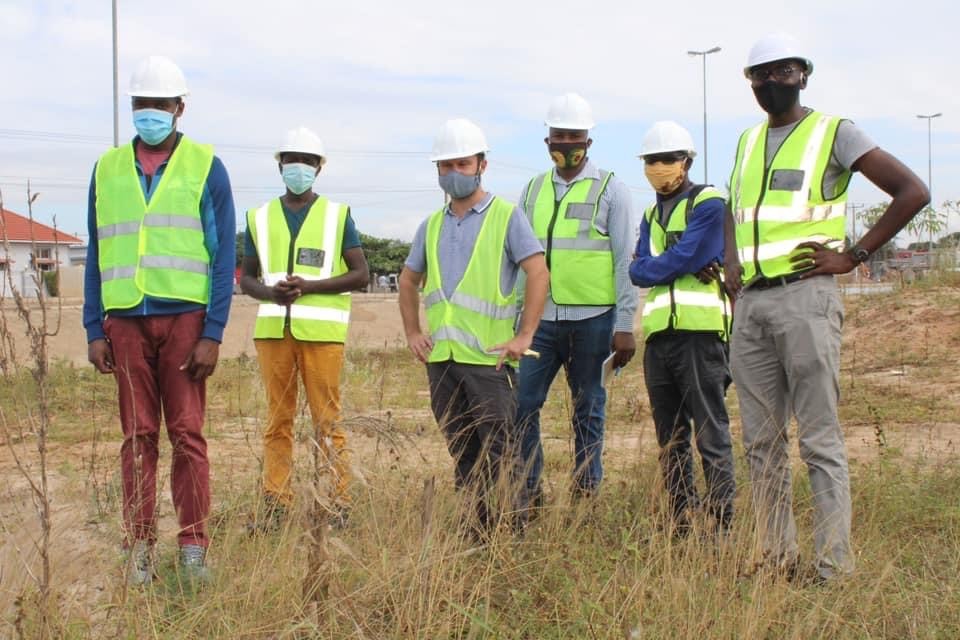Kenya informal settlement improvement project
3 min read
Kenya informal settlement improvement project

Kenya informal settlement improvement project
On Thursday, George Arwa, the National County Coordinator for the Kenya Informal Settlement Improvement Project (KISIP), and John Kihagi, the County Executive Committee Member for Lands, Physical Planning, Housing, and Urban Development, led a significant inspection visit to Kiamurogi in Nakuru East Sub County. The visit was part of an ongoing effort to evaluate the progress of various infrastructural improvements, particularly focusing on drainage systems and their environmental impact.
During the visit, the inspection team, which included representatives from the World Bank and the French Development Agency (AFD), reviewed the current drainage projects and their effects on local environmental conditions. The assessment underscored the necessity of addressing environmental issues promptly to minimize any potential negative impacts on the surrounding area.
Both Mr. Arwa and Mr. Kihagi emphasized the urgency of resolving these environmental challenges effectively. They advocated for the creation of a specialized committee tasked with exploring and recommending solutions to enhance infrastructural projects while mitigating environmental degradation, especially concerning issues like siltation.
This committee is envisioned as a vital step toward achieving a balance between development and environmental conservation. Among the solutions the committee is expected to explore are erosion control measures, regular maintenance schedules, and the adoption of sustainable materials and construction techniques.
The World Bank expressed their appreciation for the community’s feedback, describing it as crucial for ensuring that the drainage systems are both functional and environmentally sustainable. The feedback will help in refining the systems to support long-term development goals.
According to George Arwa, the KISIP initiative will benefit over 400 informal settlement schemes across Kenya, thanks to more than Sh31 billion in funding from international donors. This funding, provided by the World Bank ($150 million, equivalent to Sh24.1 billion) and the French Development Agency (€43 million, equivalent to Sh7.6 billion), will be used for various infrastructural improvements, including water supply, lighting, and social inclusion efforts in 33 counties.
Arwa noted that the World Bank’s upgrade plan aims to enhance land tenure security and improve essential services such as roads, drainage systems, pedestrian walkways, and water connections. The project also seeks to connect beneficiaries with socio-economic opportunities and bolster the capacity of both National and County Governments in developing and implementing effective slum upgrading and prevention policies.
Highlighting the rapid urbanization in Kenya, Arwa pointed out that by 2020, nearly 7.6 million urban residents were living in slums. In Sub-Saharan Africa, more than 230 million people currently reside in informal settlements, with numbers continuously rising.
John Kihagi, the County Executive for Lands, Physical Planning, Housing, and Urban Development, confirmed that the first phase of the KISIP project in Nakuru County received Sh429.7 million in grants from the World Bank. This funding facilitated significant improvements in drainage systems, waste management, road tarmacking in eight slums, and the installation of security lights.
The slums that benefited from these upgrades during the first phase included Kaptembwa, with a population of over 130, as well as Kivumbini, Kaloleni, Bondeni, and Kwa-Rhonda. Kihagi reported that these improvements have significantly transformed the lives of Nakuru residents, particularly those in informal settlements. The enhanced access to basic services such as water, improved drainage systems, and better security through floodlights has made a notable difference in the community’s daily life.
Overall, the KISIP project represents a significant step forward in addressing the challenges faced by informal settlements in Kenya. By combining infrastructural improvements with a strong focus on environmental sustainability, the project aims to foster a more equitable and resilient urban environment.